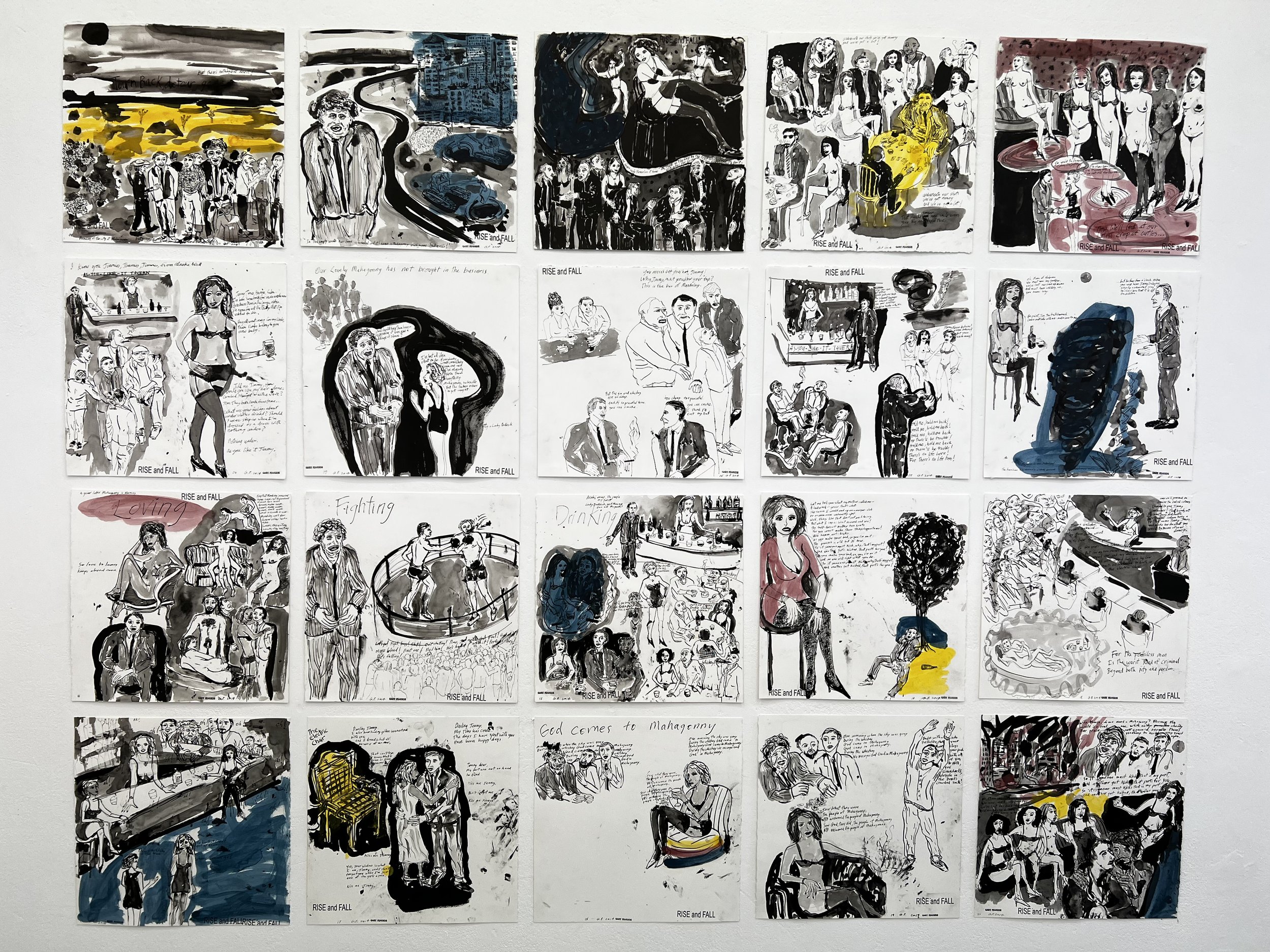
Seriously? Comedy and Satire in Canadian Art 1970s-Now
January 25 – May 18, 2025
Curated by Melissa E. Feldman
Opening reception: Friday, January 24, 2025, 6:00-8:00 PM
Comedy and cartoon are not words that readily come to mind when thinking of contemporary art in Canada. Since the 60s, taut conceptualism and postmodern critique are more characteristic associations, and took form experimentally whether through new media, mail art and performance. This is the genre that brought artists from Vancouver to Halifax to international prominence.
Taking an alternate tack, Seriously? Comedy and Satire in Canadian Art 1970s-Now, looks across the country and two generations of artists to develop a cross-sectional survey of work grounded in graphic (figural) narrative and its frequent companion, political satire. While artists such as Judy Chartrand, Maxwell Bates and Anna Banana offer sharp commentary on mainstream culture and identity politics, others, such as Shuvinai Ashoona, Victor Cicansky, and Maud Lewis delight in the rhythms of lives spent close to nature and their communities. Featuring works by 20 artists drawn primarily from private collections, the exhibition disregards the usual separations that persist along regional lines and traditional versus experimental approaches. Instead, Seriously? reveals connections between the folksy Victoria school, Vancouver’s edgy Western Front scene, Halifax conceptualism, Regina funk and First Nations artists' embrace of manga and comics.
The exhibition features Eleanor Antin, Shuvinai Ashoona, Peter Aspell, Sonny Assu, Anna Banana, Maxwell Bates, Judy Chartrand, Victor Cicansky, Marcel Dzama, Maud Lewis, Andrea Mortson, Adrian Norvid, Gary Pearson, Maija Peeples-Bright, Walter Scott, Vincent Trasov, William T. Wiley, Nico Williams, and Michael Nicoll Yahgulanaas.
Melissa E. Feldman Melissa E. Feldman is an American contemporary art curator and writer known for novel curatorial approaches focusing on the geo-cultural context of art and under-the-radar artistic trends and histories. Recent projects include Is and Isn’t: A context for Denzil Hurley (2023), Canada, New York; Uses of History (2019), studio e, Seattle; and the travelling exhibitions Indie Folk: New Art and Sounds from the Pacific Northwest, organized by the Jordan Schnitzer Museum of Art, Pullman, WA (2022–2024); Free Play, Independent Curators International (2013–2017); and Another Minimalism: Art After California Light and Space, organized by the Fruitmarket Gallery, Edinburgh (2015–2016). A contributor to Art in America, Frieze, and Third Text, among other publications, Feldman has taught at the California College of Art, the San Francisco Art Institute, Cornish College of the Arts and Goldsmith’s College. She is credited, as a curator at the Institute of Contemporary Art, Philadelphia, in the 1990s, with organizing the first monographic exhibitions for such artists as Karen Kilimnik, Martin Kippenberger, Beverly Semmes and Hiroshi Sugimoto.
Image: Andrea Mortson, Together-dream Sampler (2021), Analog collage, 28 x 35 inches unframed, Collection of the Artist
Image (top of page): Gary Pearson, Rise and Fall (2014), Ink. Oil and rubberstamp or ink and rubberstamp on paper, 16 x 16” each; 64 x 80” overall, Collection of the artist

